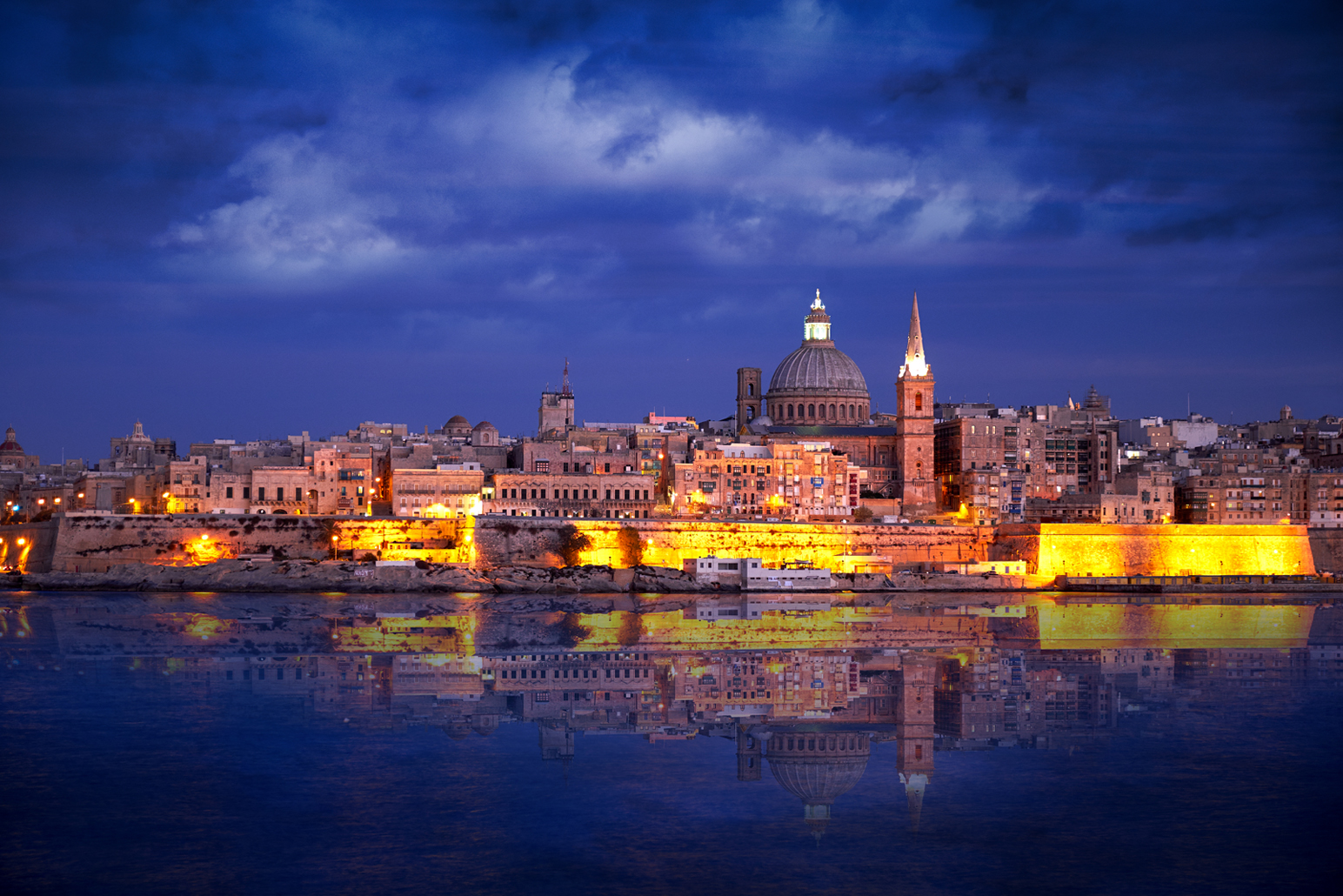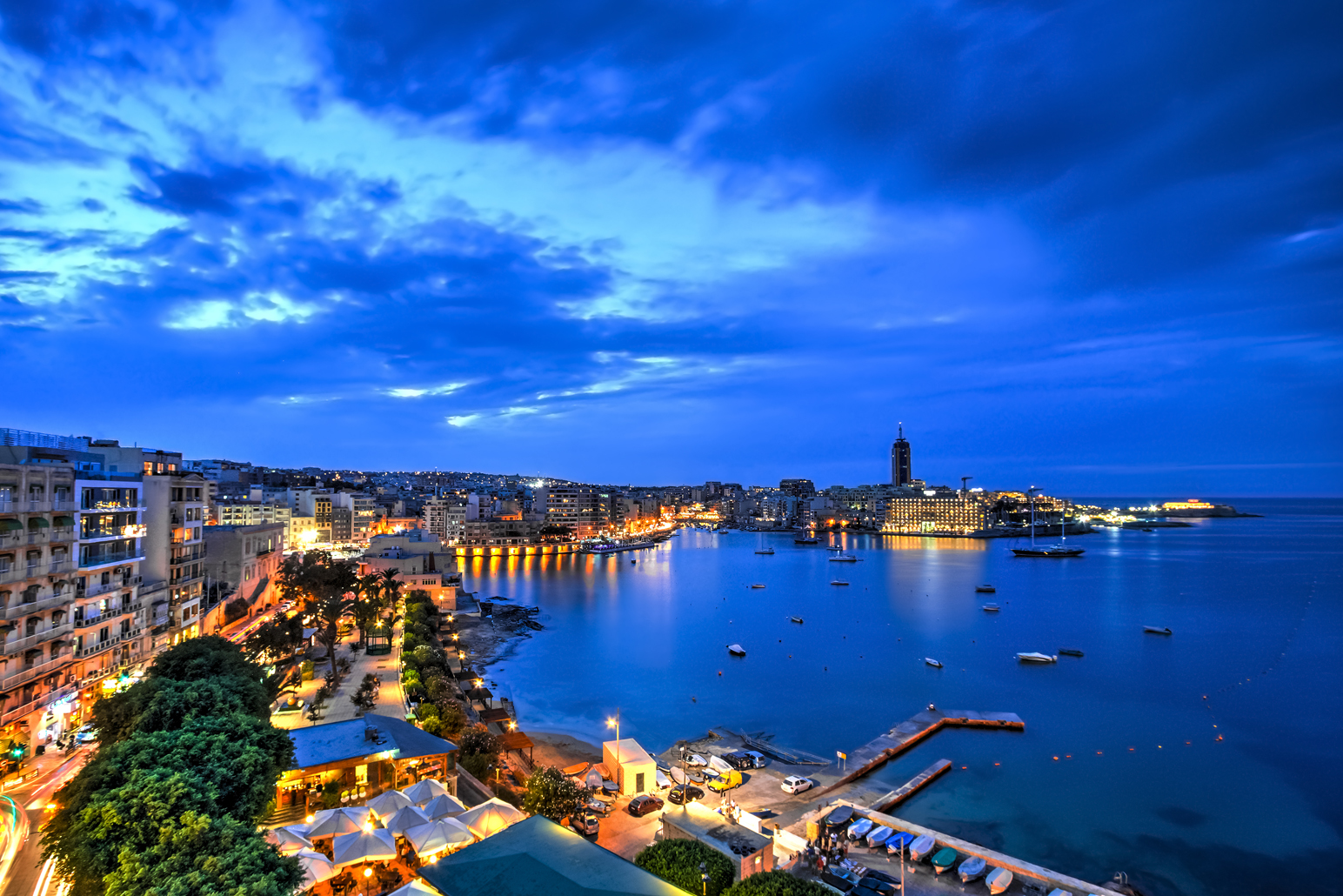Country Profile
The Republic of Malta is an archipelago located in the middle of the Mediterranean, rich in history, culture & natural beauty. Inhabited since approximately 5600 B.C., it is home to pristine beaches, unbelievable lagoons, enchanting architecture & exciting entertainment, with its capital city Valletta being declared a UNESCO world heritage site. It offers a standard of living slightly higher than even the EU.
With a succession of powers having contested and ruled the islands, including the Phoenicians, Carthaginians, Romans, Greeks, Byzantines, Arabs, Normans, Sicilians, Spanish, Knights of St. John, French, and British, these foreign influences have left a mark on the country’s ancient culture.
Its location in the middle of the Mediterranean has historically given it great strategic importance as a naval base & as a crossroads between Europe, North Africa & the Middle East.
The government of Malta is based on a Parliamentary system, closely modelled on the Westminster system. It gained independence from the UK in 1964 & became a republic in 1974. It joined the EU in 2004 & became a part of the Eurozone in 2008. It is also a member of the Schengen area since 2007.
Malta is a very popular tourist destination with its warm climate, numerous recreational areas, and architectural and historical monuments, including three UNESCO World Heritage Sites – Hypogeum Hal Saflieni, city of Valletta and seven megalithic temples, which are some of the oldest free-standing structures in the world. Tourism is the nation’s primary source of income. In 2017, over 2.2 million tourists visited the island, contributing an estimated 27% to GDP. As part of both the European Union (EU) & the Schengen area, EU & Schengen visitors can travel freely into & out of the country. In recent years, medical tourism has also become popular.
Malta has a Mediterranean climate, with mild winters and hot summers, hotter in the inland areas. Rain occurs mainly in autumn and winter, with summer being generally dry.
Malta International Airport is the only airport serving the Maltese islands, with ‘Air Malta’ being the national carrier & major international airlines offering connectivity from major destinations around the world.
Education
Due to Malta’s past as a British colony Maltese state school sector naturally draws its main inspiration from the British educational system. With a very high standard of education, all children between 4-16 years old have the right to free education in all state schools, regardless of age, sex and belief. The education system is broadly categorized into the following :
Primary School: 4-10 years old
Secondary School: 11-16 years old
O-levels: 16 years old (open for everyone)
Sixth Form: 16-18 years old
A-levels: 16 years old (open for everyone)
University, MCAST: 18 -25+
In Malta, schools are divided into two categories: State Schools and Private Schools.
Healthcare
Malta is ranked 5th (amongst 191 countries) by the WHO Measuring Overall Health Performance Index. It has a long history of providing publicly funded healthcare. Today, Malta has both a public healthcare system, known as the government healthcare service, where healthcare is free at the point of delivery, and a private healthcare system. Malta has a strong general practitioner-delivered primary care base and the public hospitals provide secondary and tertiary care. The Maltese Ministry of Health advises foreign residents to take out private medical insurance.
Malta is one of two countries in Europe which offer both a Permanent Residency & Citizenship by Investment Program.

